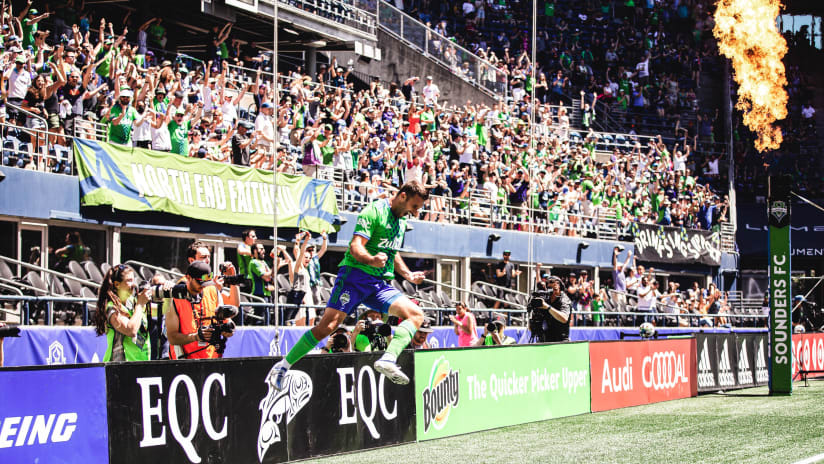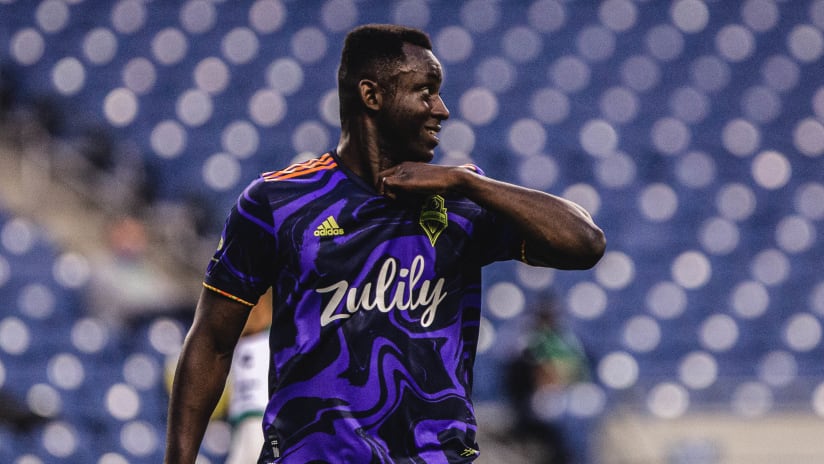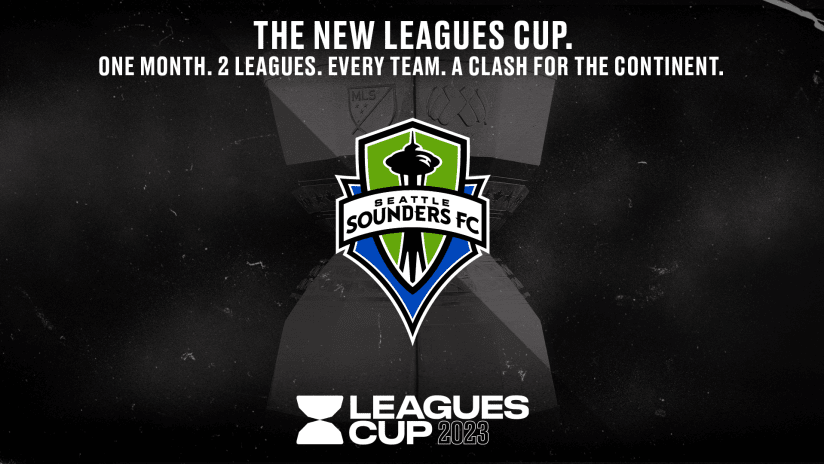The Shipp is now at harbor in Seattle. And he’s bringing another member of the fleet with him.
That Shipp, of course, is Harry Shipp, the former Chicago Fire Homegrown Player the Sounders acquired Thursday in a trade with the Montreal Impact. The Sounders parted with general allocation money, and in return they nabbed Shipp, one of the most enigmatic young players in MLS. Shipp’s been productive in each of his three years in the league — he’s already clocked more than 6,000 minutes as a pro — and yet here he is, embarking on an expedition with his third team in his fourth season.
And Shipp isn’t alone. With nearly the same stroke of a pen a day later, the Sounders announced on Friday they’d also acquired longtime Houston Dynamo striker Will Bruin in exchange for general allocation money. Considering Bruin (Nelson Valdez) and Shipp (Erik Friberg) provide cover for players whose contract options were not exercised this offseason, it would seem the Sounders are shoring up depth to prepare.
Shipp is inscrutable, and enticingly so, precisely because he hasn’t quite found his footing with a coach yet. In his first year with the Fire in 2014, Shipp had his best year with seven goals and six assists in 33 games under then-coach Frank Yallop. The next year, he fell out of favor with new coach Veljko Paunovic in the offseason, and despite a quality year was dealt to Montreal. Impact coach Mauro Biello’s sides played a ton on the break, favoring an older and more defensively minded midfield trio. Shipp ultimately started 20 games in 2016, but he never quite looked settled in Montreal’s counter-break system.
When he was left unprotected in the Expansion Draft earlier this month, and then stunningly not selected, the writing was on the wall in bright neon ink: Shipp’s time in Montreal was done.
In theory, Shipp, 25, might’ve finally found his safe harbor in Seattle because at least tactically he seems to line up with coach Brian Schmetzer’s ethos perfectly. Where Yallop wanted directness, Paunovic wanted speed and Biello wanted a bit of both, Schmetzer wants passes and smart possession. And Shipp can provide that in spades.
One of the knocks on Shipp out of Notre Dame in 2014 was his lack of an obvious position. He played the No. 10 role with the Irish, but he often preferred to peel back a bit and removed himself from the all-critical Zone 14, or the central area just at the top of the opposition box. That’s where No. 10s do their most devastating work, and Shipp more often than not found himself outside it.
Failing that, Shipp was asked to largely be a wide player or a regista, a withdrawn playmaker, in his three stops. This was a difficult ask in Chicago and Montreal because neither was particularly well-suited to his skill set. Shipp doesn’t have much in the way of speed, and he doesn’t want to go over the top; he prefers to keep it on the ground and work toward the box methodically.
Only the Columbus Crew averaged more than Seattle’s 414 short passes per game in 2016.
So Shipp’s passing numbers — he only averaged 23 passes per game in 2016 at 78 percent accuracy — don’t look particularly notable. But in a system that plays to his strengths like Seattle’s? It’s a different story.
It’s no secret the Sounders desperately need width this offseason, and in an ideal world Shipp doesn’t fill that need. He’s been bundled out wide at times in his career, and he inevitably ends up as a collapsing winger much like Alvaro Fernandez or Andreas Ivanschitz or Jordan Morris were in 2016. Shipp can fill in there (and even start there), but it won’t make the Sounders any more multi-faceted than they already were.
Where Shipp does seem to fill a niche is as a ball-shuttler between Nicolas Lodeiro and Osvaldo Alonso. Shipp’s tremendously similar to Cristian Roldan, in almost every area, which means the Sounders can afford to lose a guy like Friberg if the Swede, whose contract option was declined this offseason, ultimately moves on before the 2017 season. If not, the Sounders are as deep in the central midfield as any team in MLS. And perhaps more so than anyone else.
Bruin’s role is a bit more obvious. He’s a No. 9, plain and simple. The 27-year-old is coming off his slowest season, but he still managed four goals for a Dynamo team that lacked creative impetus for most of 2016. But Bruin’s career bonafides put him in a unique place. In his first 178 MLS games, he has 50 goals, good for 49th in MLS history with (possibly) an entire half of his career yet to go. His 46 goals in his first five seasons from 2011-15 were also the sixth-most in MLS in that span.
Unlike Shipp, Bruin isn’t exactly coming for his versatility. He’s a striker: not a withdrawn striker, or a winger or a Clint Dempsey type who can pull back to create. Bruin is a pure forward, and the Sounders needed one. As good as Morris has been, Herculez Gomez did not have his contract option exercised, and Valdez’s future is up in the air. Adding another formidable offensive weapon gives Schmetzer that much more to work with on game day.
Shipp is young, he’s versatile, he’s a quality presence in the locker room and he has good years ahead. He’s also technically able, possesses plus vision and should provide a quality possession backboard for Alonso, Roldan and the rest. As for Bruin, he remains one of the most able and proven finishers in the league. They were smart moves and proved Seattle is doing anything but resting on its laurels in the days and weeks after hauling the MLS Cup trophy back home for the first time.





